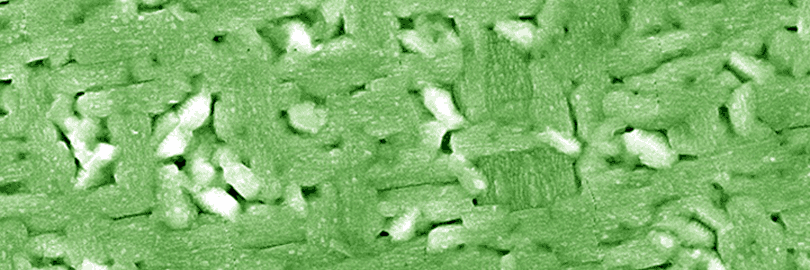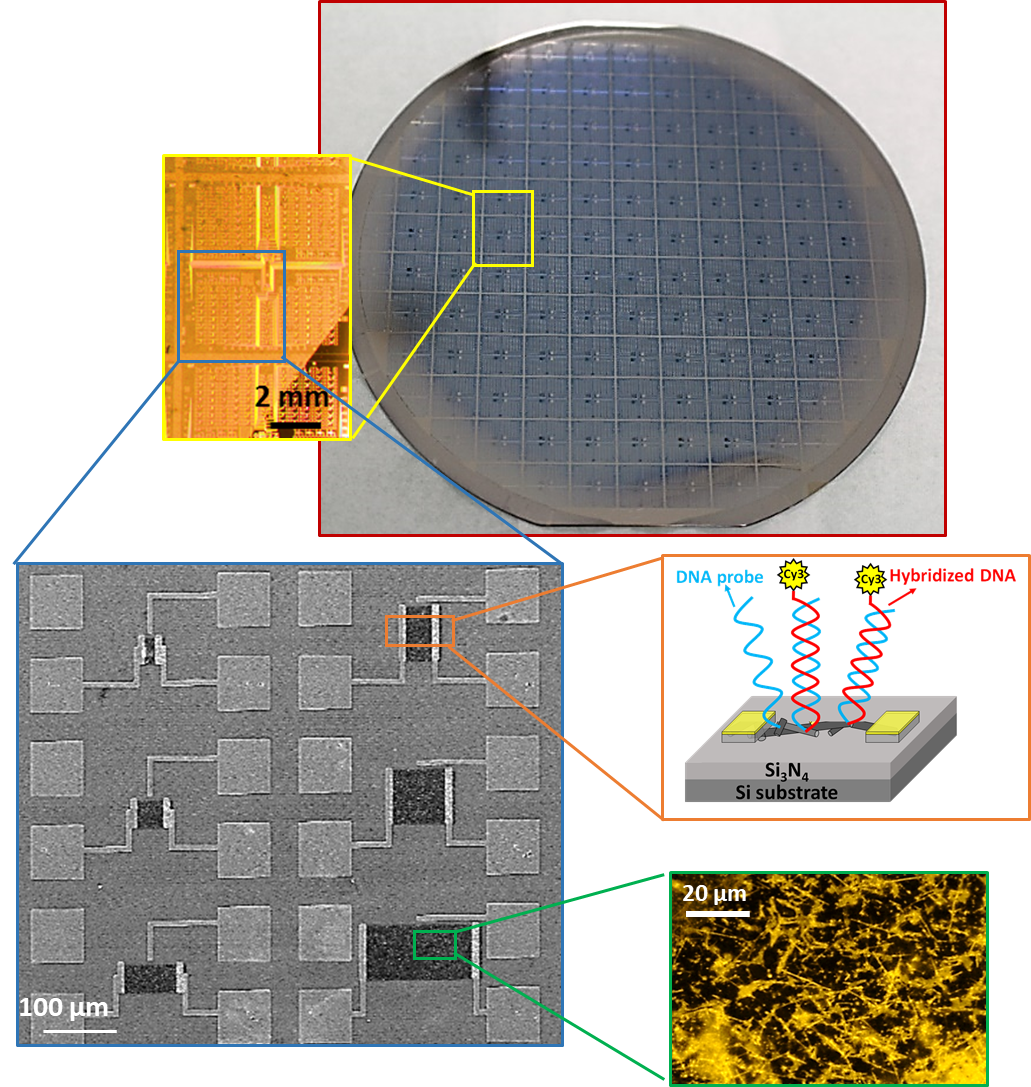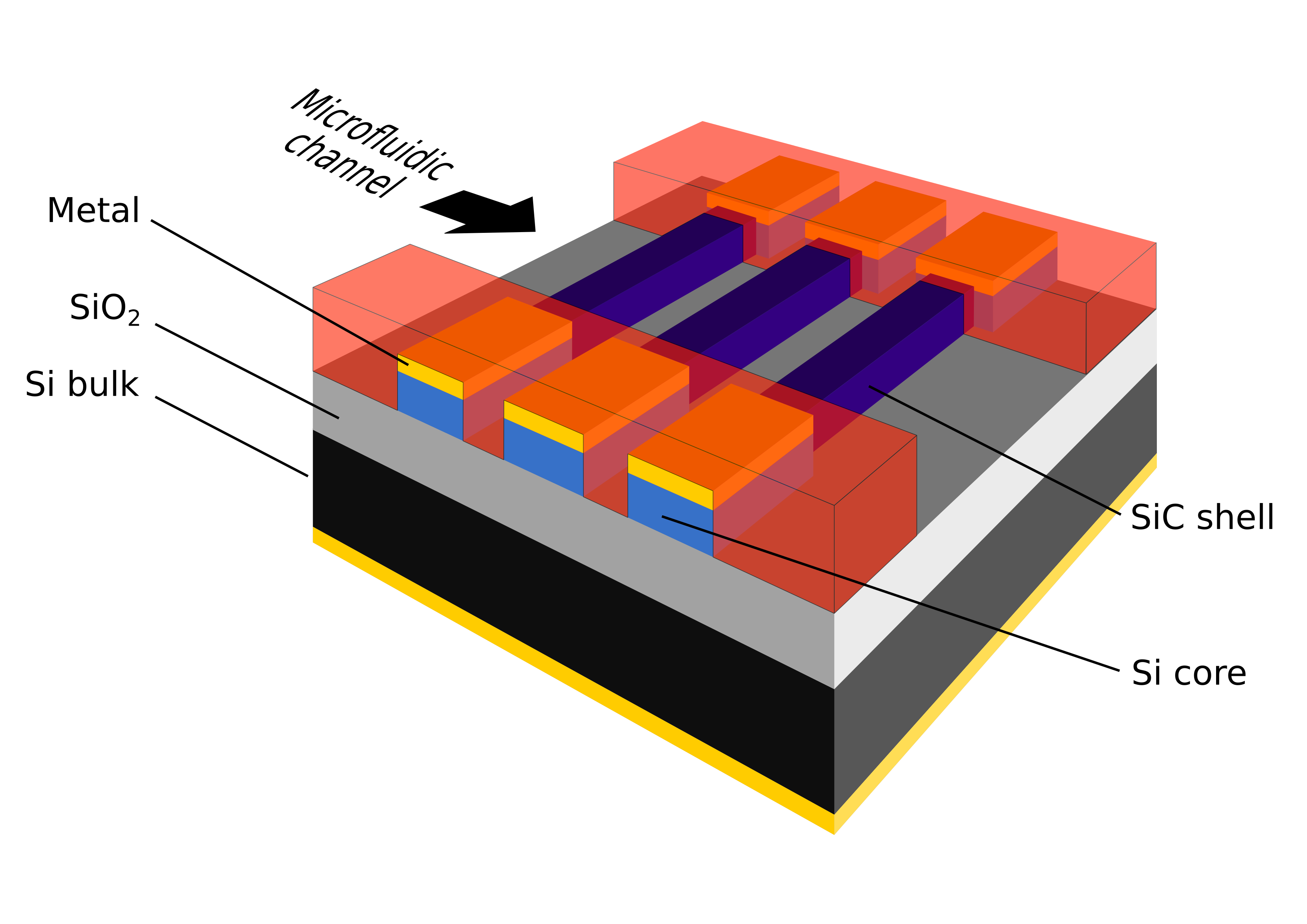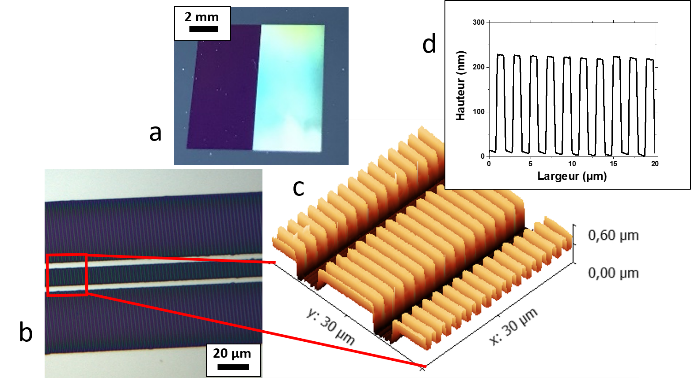Objective: development of nanotransducers for "label-free" electrical or optical detection of organic molecules.
The field of portable and low cost chemical and biological sensors is expanding. The applications are numerous: personalized medicine of tomorrow with point of care biomarker diagnosis, continuous monitoring of the environment with the quality of air, water and biological media, agrifood .. Our challenge is to manufacture transducing nanostructures while optimizing their characteristics: geometry, sensitivity, specificity, stability, reliability and robustness.
Studies are carried out along three research axes:
FETs based on semiconductor nanonets for electrical detection of biomolecules: DNA, acetone
FETs based on semiconductor nanowires for DNA electrical detection
Optical chemical sensors in guided mode
Contact
Permanent staff
current non permanent staff (2018)
- PhD students:
Fanny Morisot, Morgane Bonnel, Mónica Vallejo Pérez, Tabassom Arjimand, Romain Bange
- Post-docs:
Thuy Nguyen, Maxime Legallais, Youngjin Kim
Fanny Morisot, Morgane Bonnel, Mónica Vallejo Pérez, Tabassom Arjimand, Romain Bange
- Post-docs:
Thuy Nguyen, Maxime Legallais, Youngjin Kim
Current collaborators (2018)
- IMEP-LAHC, IMEM (Italie), SIMAP, Univ. Tampa (Floride, USA), KTH (Sweeden), LTM, ams Tech. (Austria), DCM (France), ENI Sfax (Tunisia), KTH (Sweden), Waterloo University (Canada), University of Pennsylvania (USA), Villanova University (USA)
FunSurf Research Topics
- Functional materials by vapour chemical growth techniques scalable to large area
- Wet Chemistry & Surface Functionalization
- Transparent Conducting Materials
- Nanostructures for Chemical and Biological Sensors






